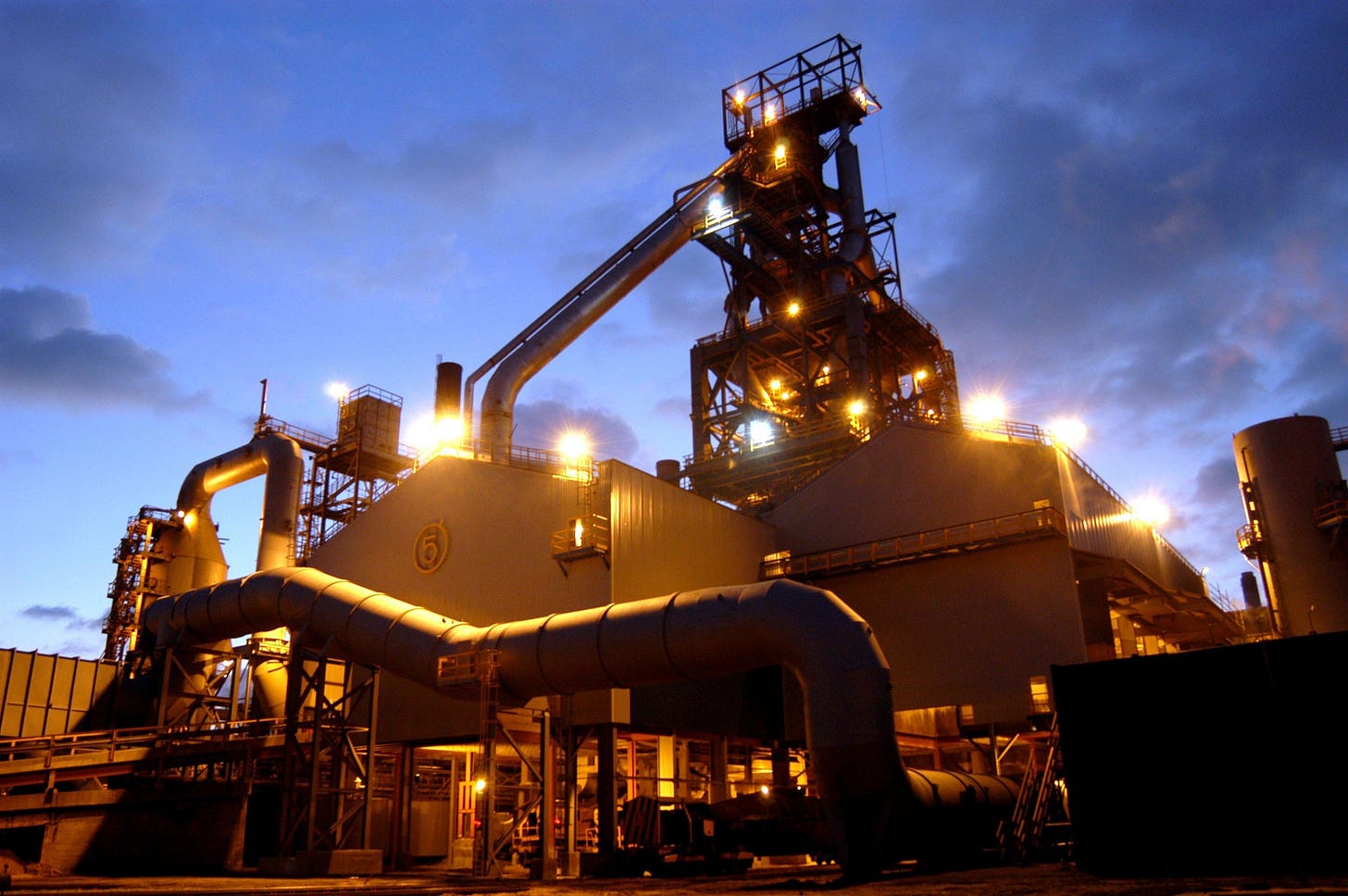Tata Steel closure leaves 2,800 jobless - but could net bosses millions in profit
Tata Steel UK has raked in government subsidies worth more than £1billion under emissions trading scheme branded "futile" by opposition MP
The owners of the doomed Port Talbot steel plant could be in line for a windfall worth tens of millions of pounds after closing the last UK blast furnaces, a Democracy for Sale Investigation has found.
The closure comes after steelmaker Tata has raked in government subsidies of more than £1billion in the last four years as part of a government scheme designed to tackle climate change.
The Emissions Trading Scheme (ETS) — described as the “cornerstone of the UK’s decarbonisation strategy” — is supposed to force big polluters to buy a government permit for each tonne of carbon they emit.
But government has given more than £1billion worth of free permits away this year alone under the ETS, previously unreported data shows.
Tata Steel UK was the largest single beneficiary of the giveaway policy, receiving almost five million permits in 2024 worth almost £200 million to cover emissions at its troubled Port Talbot Steel plant, where 2,800 works will lose their jobs at the end of this month.
These “pollution permits” were designed to protect heavily polluting UK industries like steel from cheap imports from countries with weaker environmental rules.
But the permits, if not needed, can also be sold on to other companies with heavy carbon emissions. Tata’s free permits for this year will be based on its emissions over the last two years.
Net zero research firm Veyt said this means the firm will get more than it needs. Under the current rules Tata will be able to sell the excess for a windfall profit, though the Government is reviewing the rules.
Veyt spokesman Marcus Ferdinand said based on current prices Tata would get allowances “handed out in excess of the actual emissions” and they’d be worth “around £74 million”.
But Tata said there was “no certainty” on this year’s allocation and insisted that over four years it had received fewer emissions permits than it needed for the furnaces.
The cost of the permits is meant to discourage firms from releasing greenhouse gases but critics say some firms are given free permits even after winding down operations, which they can sell for a profit to other companies.
The biggest winner in each of the last four years has been Tata Steel UK Limited – and almost all of its free allocations were for the Port Talbot plant, the UK’s biggest carbon emitter. This year, the company’s total free allocation is 4.9m permits, 4.6m of them for Port Talbot. Each permit, at current prices, is worth around £40.
Tata’s total allocation over four years was worth around £1.4bn based on average prices at the time. But the company says it has not been enough to save the loss-making plant.
Adrian Ramsay, co-leader of the Green Party and MP for Waveney Valley, told Democracy for Sale he was “shocked to hear that the very companies causing the climate crisis are literally being given a licence to pollute.”
Ramsay said the handout of free pollution permits rendered Britain’s emissions trading system “futile”.
The Government has agreed a £500m grant for Tata under a £1.25bn green modernisation plan to produce steel from scrap. A Government spokesperson said: “The UK Emission Trading Scheme is helping us deliver our mission for clean power by 2030.”






